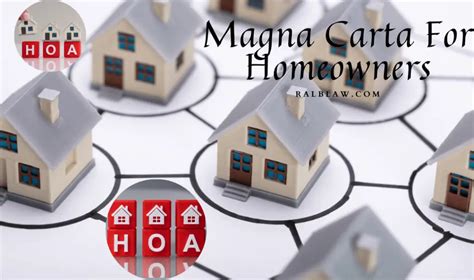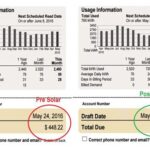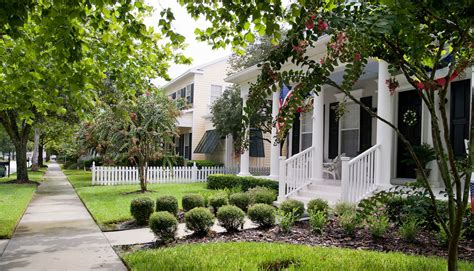
A new Arizona law significantly curtails the power of homeowners associations (HOAs), granting homeowners greater autonomy over their properties and challenging previously strict regulations on architectural changes, landscaping, and other aspects of homeownership. House Bill 2160, championed by homeowner advocates, aims to balance HOA authority with individual property rights, addressing concerns about excessive fines, arbitrary rule enforcement, and limited recourse for homeowners.
Arizona homeowners are celebrating a new state law that limits the authority of homeowners associations (HOAs) and empowers residents with greater control over their properties. House Bill 2160, which recently went into effect, introduces significant changes to the relationship between HOAs and homeowners, addressing long-standing concerns about overreach and unfair enforcement of community rules. The legislation aims to strike a better balance between maintaining community standards and protecting individual property rights.
Key Provisions of House Bill 2160
House Bill 2160 introduces several key provisions designed to protect homeowners from perceived HOA overreach:
- Reasonable Restrictions: The law mandates that HOA regulations must be “reasonable” and “uniformly applied.” This provision seeks to prevent HOAs from imposing arbitrary or overly restrictive rules on homeowners. According to the bill’s language, any restriction must be tied to a legitimate purpose, such as maintaining property values or ensuring safety.
- Fining Procedures: HB 2160 establishes stricter guidelines for fining homeowners. HOAs must now provide homeowners with a clear written notice of the alleged violation, along with an opportunity to correct the issue before any fines are levied. The law also requires HOAs to offer a hearing process where homeowners can contest the violation and present their case.
- Architectural Approvals: The legislation streamlines the architectural approval process, requiring HOAs to respond to homeowner requests within a specified timeframe. Failure to respond within the allotted time is considered an automatic approval of the proposed changes. The bill also limits the types of architectural restrictions that HOAs can impose, preventing them from dictating overly specific details such as paint colors or landscaping choices.
- Access to Records: HB 2160 expands homeowners’ rights to access HOA records, including financial documents, meeting minutes, and correspondence. This provision aims to increase transparency and accountability within HOAs, allowing homeowners to better understand how their association is being managed.
- Dispute Resolution: The law encourages alternative dispute resolution methods, such as mediation, to resolve conflicts between HOAs and homeowners before resorting to litigation. This approach seeks to reduce the cost and time associated with resolving disputes, while also fostering more amicable relationships within communities.
- Landscaping Restrictions: The new law also addresses landscaping restrictions. HOAs are now limited in their ability to restrict low-water-use landscaping, especially in drought-prone areas. This allows homeowners to implement water-saving measures without fear of HOA penalties, supporting water conservation efforts across the state.
- Flag Display: HB 2160 protects the right of homeowners to display the American flag and certain other flags on their property, subject to reasonable restrictions on size and placement. This provision balances patriotic expression with community aesthetic standards.
- Rental Restrictions: The law also addresses rental restrictions, limiting the ability of HOAs to impose overly burdensome regulations on homeowners who rent out their properties. While HOAs can still enforce rules regarding tenant behavior, they cannot unreasonably restrict the right of homeowners to lease their properties.
- Solar Energy Devices: The bill bolsters existing protections for solar energy devices, preventing HOAs from unreasonably restricting their installation and use. This promotes the adoption of renewable energy and reduces homeowners’ reliance on traditional energy sources.
- Vegetable Gardens: The law now allows homeowners to grow vegetable gardens on their property, restricting the HOAs’ ability to prohibit such activity. It encourages homeowners to grow their own food without restrictions.
Impact on Homeowners
The new law is expected to have a significant impact on homeowners throughout Arizona. By limiting HOA power and expanding individual property rights, HB 2160 offers homeowners greater control over their properties and reduces the risk of arbitrary or unfair enforcement of community rules.
“This is a victory for homeowners who have long felt powerless against their HOAs,” said State Representative [insert name if available in source, otherwise omit], a key sponsor of the bill. “HB 2160 ensures that HOAs are accountable to their members and that homeowners have a fair opportunity to challenge decisions that affect their lives.”
Many homeowners have expressed relief and gratitude for the new law. “For years, I felt like my HOA was constantly breathing down my neck,” said [insert homeowner name if available in source, otherwise omit], a homeowner in Scottsdale. “They nitpicked everything from the color of my mailbox to the type of plants in my garden. This new law gives me the freedom to enjoy my property without constantly worrying about violating some obscure rule.”
HOA Concerns and Responses
While HB 2160 has been widely praised by homeowners, some HOAs have expressed concerns about the potential impact on community standards and property values. Some argue that the new law could make it more difficult to enforce community rules and maintain aesthetic consistency within neighborhoods.
“We understand the need to protect homeowners’ rights, but we also believe that HOAs play an important role in preserving property values and ensuring a high quality of life for residents,” said [insert HOA representative name/title if available in source, otherwise omit]. “We are concerned that HB 2160 could undermine our ability to effectively manage our communities.”
In response to these concerns, proponents of the law argue that HB 2160 strikes a reasonable balance between individual rights and community interests. They emphasize that the law does not eliminate HOA authority altogether, but rather seeks to ensure that HOAs exercise their power fairly and responsibly.
Legal Challenges and Interpretations
It is possible that some provisions of HB 2160 could face legal challenges in the future, as HOAs and homeowners grapple with interpreting the law’s requirements. Courts may be called upon to determine the meaning of terms such as “reasonable restrictions” and “uniformly applied,” and to resolve disputes over the application of the law to specific situations.
Attorneys specializing in HOA law advise homeowners to familiarize themselves with the provisions of HB 2160 and to understand their rights under the new law. They also recommend that HOAs review their governing documents and procedures to ensure compliance with the law’s requirements.
Broader Implications
The passage of HB 2160 in Arizona reflects a broader trend of increasing scrutiny of HOA power and a growing movement to protect homeowners’ rights. Similar legislation has been introduced in other states, as lawmakers seek to address concerns about HOA overreach and ensure that homeowners have a fair voice in the management of their communities.
The Arizona law could serve as a model for other states considering reforms to their HOA laws. By balancing individual property rights with community interests, HB 2160 offers a framework for creating more equitable and harmonious relationships between HOAs and homeowners.
Expert Opinions and Analysis
Legal experts suggest that the long-term effects of HB 2160 will depend on how it is interpreted and implemented by HOAs and courts. Some believe that the law will lead to a significant shift in power dynamics, empowering homeowners and holding HOAs more accountable. Others caution that the law could lead to increased litigation and disputes, as HOAs and homeowners struggle to navigate the new legal landscape.
Regardless of the ultimate outcome, HB 2160 represents a significant step towards protecting homeowners’ rights and ensuring that HOAs operate in a fair and transparent manner. The law is a testament to the growing awareness of the need to balance community standards with individual freedoms and to create a more equitable system of governance in homeowner associations.
Practical Steps for Homeowners
Following the enactment of House Bill 2160, homeowners in Arizona should take several practical steps to understand and leverage their enhanced rights:
- Review HOA Governing Documents: Homeowners should thoroughly review their HOA’s governing documents, including the covenants, conditions, and restrictions (CC&Rs), bylaws, and rules and regulations. This review should be conducted in light of the new law to identify any provisions that may conflict with HB 2160.
- Understand Your Rights: Familiarize yourself with the specific provisions of HB 2160. Pay particular attention to the sections regarding reasonable restrictions, fining procedures, architectural approvals, access to records, dispute resolution, and landscaping restrictions.
- Document Everything: Keep detailed records of all interactions with your HOA, including written correspondence, meeting minutes, and photographic evidence of any violations or issues. This documentation can be invaluable in resolving disputes or challenging HOA decisions.
- Communicate with Your HOA: Engage in open and respectful communication with your HOA board and management company. Express your concerns and seek clarification on any issues related to HB 2160.
- Attend HOA Meetings: Regularly attend HOA meetings to stay informed about community issues and to voice your opinions on proposed rules and regulations. This is an opportunity to participate in the decision-making process and to advocate for your rights.
- Seek Legal Advice: If you encounter a dispute with your HOA that you are unable to resolve on your own, consult with an attorney specializing in HOA law. An attorney can provide you with legal advice, represent you in negotiations, and, if necessary, litigate your case in court.
- Consider Mediation: Explore alternative dispute resolution methods, such as mediation, to resolve conflicts with your HOA. Mediation can be a cost-effective and less adversarial way to reach a mutually agreeable solution.
- Organize with Neighbors: Collaborate with your neighbors to address common issues and to advocate for changes to HOA rules and regulations. A united front can be more effective in influencing HOA decisions.
- Report Violations: If you believe that your HOA is violating HB 2160, report the violation to the appropriate state agency or regulatory body.
- Stay Informed: Stay up-to-date on any developments related to HB 2160, including court decisions, legislative amendments, and regulatory interpretations. This will help you to protect your rights and to navigate the evolving legal landscape.
Background on Homeowners Associations
Homeowners Associations (HOAs) are private organizations that govern planned communities, condominiums, and other residential developments. HOAs are typically responsible for maintaining common areas, enforcing community rules, and providing services such as landscaping, security, and trash removal.
HOAs derive their authority from covenants, conditions, and restrictions (CC&Rs) that are recorded in the land records and bind all property owners within the community. These CC&Rs typically grant the HOA the power to adopt and enforce rules and regulations, assess fees and fines, and take legal action against homeowners who violate the rules.
The role and function of HOAs have evolved significantly over time. In the early days of planned communities, HOAs were primarily focused on maintaining property values and ensuring a high quality of life for residents. However, as HOAs have become more common, they have also become more complex and controversial.
Some homeowners have complained about HOA overreach, arbitrary rule enforcement, and lack of transparency. They argue that HOAs often wield excessive power and that homeowners have limited recourse when they disagree with HOA decisions.
In response to these concerns, lawmakers in many states have enacted legislation to regulate HOAs and protect homeowners’ rights. These laws typically address issues such as fining procedures, architectural approvals, access to records, and dispute resolution.
The debate over HOA power is likely to continue, as homeowners and HOAs grapple with the challenge of balancing individual property rights with community interests.
Future Outlook
The long-term impact of HB 2160 on Arizona’s HOAs and homeowners remains to be seen. It is anticipated that there will be a period of adjustment as HOAs adapt to the new legal landscape and homeowners become more aware of their rights.
It is also likely that there will be ongoing legal challenges and disputes as HOAs and homeowners interpret the law’s provisions and apply them to specific situations. Courts will play a key role in clarifying the meaning of ambiguous terms and resolving conflicts between HOAs and homeowners.
Ultimately, the success of HB 2160 will depend on the willingness of HOAs and homeowners to work together in a spirit of cooperation and mutual respect. By fostering open communication, promoting transparency, and embracing alternative dispute resolution methods, HOAs and homeowners can create more harmonious and equitable communities.
Frequently Asked Questions (FAQ)
1. What is House Bill 2160, and what does it do?
HB 2160 is a new Arizona law that limits the power of homeowners associations (HOAs) and empowers homeowners with greater control over their properties. It introduces changes regarding reasonable restrictions, fining procedures, architectural approvals, access to records, dispute resolution, landscaping restrictions, flag display, rental restrictions, solar energy devices, and vegetable gardens. The law aims to balance HOA authority with individual property rights.
2. How does HB 2160 affect HOA fining procedures?
The law establishes stricter guidelines for fining homeowners. HOAs must now provide a clear written notice of the alleged violation, allow an opportunity to correct the issue before any fines are levied, and offer a hearing process where homeowners can contest the violation.
3. What changes does HB 2160 make to the architectural approval process?
HB 2160 streamlines the architectural approval process, requiring HOAs to respond to homeowner requests within a specified timeframe. Failure to respond within the allotted time is considered an automatic approval. The law also limits the types of architectural restrictions HOAs can impose.
4. Does HB 2160 completely eliminate HOA authority?
No, HB 2160 does not eliminate HOA authority altogether. It aims to ensure that HOAs exercise their power fairly and responsibly, balancing individual property rights with community interests. HOAs still have the authority to enforce reasonable rules and regulations that maintain community standards and property values.
5. Where can I find the full text of House Bill 2160?
The full text of House Bill 2160 can be found on the Arizona State Legislature’s website. Search for “HB 2160” on the legislature’s site to access the complete bill language and legislative history. You can also consult with an attorney specializing in HOA law for assistance in interpreting the law’s provisions.
6. How does HB 2160 define “reasonable restrictions” regarding HOA regulations?
The law mandates that HOA regulations must be “reasonable” and “uniformly applied.” While the law does not provide a specific definition of “reasonable,” it generally implies that restrictions must be tied to a legitimate purpose, such as maintaining property values or ensuring safety. Courts may be called upon to interpret this term in specific disputes.
7. What rights does HB 2160 grant homeowners regarding access to HOA records?
HB 2160 expands homeowners’ rights to access HOA records, including financial documents, meeting minutes, and correspondence. This aims to increase transparency and accountability within HOAs, allowing homeowners to better understand how their association is being managed and make informed decisions.
8. What are the provisions in HB 2160 regarding landscaping restrictions, especially in drought-prone areas?
The new law limits HOAs’ ability to restrict low-water-use landscaping, especially in drought-prone areas. This allows homeowners to implement water-saving measures without fear of HOA penalties, supporting water conservation efforts across the state.
9. How does HB 2160 address disputes between homeowners and HOAs?
HB 2160 encourages alternative dispute resolution methods, such as mediation, to resolve conflicts before resorting to litigation. This approach seeks to reduce the cost and time associated with resolving disputes while fostering more amicable relationships within communities.
10. What does HB 2160 say about a homeowner’s right to display the American flag?
HB 2160 protects the right of homeowners to display the American flag and certain other flags on their property, subject to reasonable restrictions on size and placement. This provision balances patriotic expression with community aesthetic standards.
11. Can an HOA still regulate tenant behavior under HB 2160?
Yes, HB 2160 addresses rental restrictions, limiting the ability of HOAs to impose overly burdensome regulations on homeowners who rent out their properties. While HOAs can still enforce rules regarding tenant behavior, they cannot unreasonably restrict the right of homeowners to lease their properties.
12. What protections does HB 2160 provide for homeowners who want to install solar energy devices?
The bill bolsters existing protections for solar energy devices, preventing HOAs from unreasonably restricting their installation and use. This promotes the adoption of renewable energy and reduces homeowners’ reliance on traditional energy sources.
13. Does HB 2160 allow homeowners to grow vegetable gardens, and can an HOA prohibit them?
The law now allows homeowners to grow vegetable gardens on their property, restricting the HOAs’ ability to prohibit such activity. It encourages homeowners to grow their own food without unnecessary restrictions.
14. What should homeowners do if they believe their HOA is violating HB 2160?
Homeowners who believe their HOA is violating HB 2160 should first document all instances of the alleged violation. They should then communicate their concerns to the HOA board and management company in writing. If the issue is not resolved, homeowners may consider seeking legal advice from an attorney specializing in HOA law or reporting the violation to the appropriate state agency.
15. How might HB 2160 affect property values in communities governed by HOAs?
The impact of HB 2160 on property values is uncertain. Some argue that the law could lead to a decline in property values if it makes it more difficult for HOAs to enforce community standards and maintain aesthetic consistency. Others believe that the law could enhance property values by empowering homeowners and promoting transparency and accountability within HOAs. The actual impact will likely depend on how the law is interpreted and implemented in different communities.









